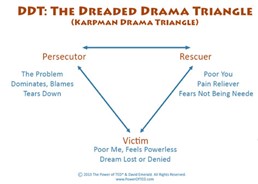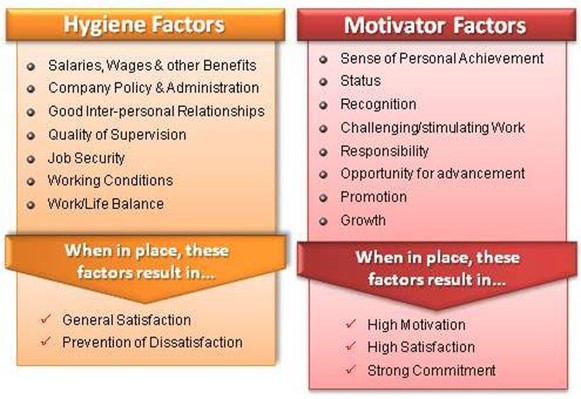
From Student to Researcher (in one Term!) Post 9: What?! No (team) drama?
We don’t have a lot of team drama in our team-based CURE course. What gives?
By Harold Bull, Dawn Giesbrecht and Sheryl Mills(This blog series is authored by USask denizens Harold Bull, Dawn Giesbrecht and Sheryl Mills) Harold is Assistant Professor Biochemistry, Microbiology & Immunology. Dawn is Laboratory Instructor Anatomy, Physiology and Pharmacology; Biochemistry, Microbiology and Immunology. Sheryl is Associate Director, Academic Programs & Interprofessional Education)
We don’t have a lot of team drama in our team-based CURE course. What gives?
Often we hear stories from both students and instructors on how PAINFUL group work is! As we reflect on our CURE offerings, we realize that there is very little—or virtually none—of the drama we have heard about (or have experienced) in more traditionally-structured classes. Why is that?
Well, as you can imagine if you have read previous episodes in this series, we have a few ideas 😉…
Elsewhere in this series we used Maslow’s Hierarchy of Needs as a framework to analyze both the learners’ and the instructors’ CURE experiences. In this episode we introduce Hertzberg’s Motivation and Hygiene Factors as a framework to analyze our observed positive team dynamics. The bottom line message, in our experience, the CURE course is heavily skewed toward Motivation Factors and, because of this, team drama can get no foothold.
Figure 1 Motivation and Hygiene Factors[1]

Tables 1 and 2 line-up the CURE approach with the Hygiene and Motivation Factors in more detail.
Table 1 CURE Hygiene Factors.
|
Hygiene Factor |
In CURE |
Description |
|
Salaries, Wages & other Benefits |
✔ |
Grades—yes, learners get them.[2] |
|
Company Policy & Administration |
✔ |
Course syllabus with clearly delineated deliverables and timelines. We also have a clear structure and rhythm with weekly meetings. |
|
Good Inter-personal relationships |
✔ |
Learners choose their own teams. The course structure and the focus on the research project mitigates the traditional power imbalances that may exist between ‘teacher (judger and mark bequeather)’ and ‘student’ (obsequious[3] mark receiver). This helps to create a productive sense of collegiality. |
|
Quality of supervision |
✔ |
Yes. We are awesome! 😉 Just-in-time and responsive to learners’ immediate needs. |
|
Job security |
✔ |
Learners paid for the joy of joining us on this research adventure…Thus far, we have not ejected any players from the game. |
|
Working conditions |
✔ |
Top-notch! Learners make their own hours (well, regularly scheduled meeting times). The lab closes at night—though many have asked to work later and, in a few cases even, after the course officially ends—to continue working on their research projects. |
|
Work/life balance |
✔ ? 😉 |
Learner quote from Episode 3: “This project essentially became my life: instead of scrolling through Pinterest on my phone at night, I was looking up purification protocols.” |
Table 2 CURE Motivation Factors.
|
Motivators |
In CURE |
Description |
|
Sense of Personal Achievement |
✔ |
See Episode 3 for learner comments! 🌟🌟🌟 Learners perform in the “excellent to exceptional range” according to the USASK Undergraduate Grading System. |
|
Status |
✔ |
Learners have become at least level 4 ‘researchers’ according to the RSD7 Framework.[4] |
|
Recognition |
✔ |
Teams publicly present and receive recognition for the research process and results they have achieved and have the opportunity to submit their articles for further recognition in peer-reviewed journals. |
|
Challenging/stimulating Work |
✔ |
Research projects are scaffolded and scoped appropriately for a 3 cu course. Our learners are truly engaged and are in a ‘state of flow’.[5] |
|
Responsibility |
✔ |
Projects are learner/team-owned and driven. |
|
Opportunity for advancement |
✔ |
Learners develop primary transferable skill sets[6] that provide a foundation for further academic work and research, as well as skills relevant to any work place. |
|
Promotion |
✔ |
All of our learners (that remained past day 1!) have graduated from this course with final grades from the excellent to exceptional category. |
|
Growth |
✔ |
Please see Episode 3 again. 🌟🌟🌟 😃 |
In our experience, not having to deal with ‘drama’ was a pleasant surprise, not intentionally planned, and it only came to our attention through retrospection[7]. Happenstance, perhaps…but we’re back to Science, DAMN IT—and it is reproducible!
To summarize, these are the key factors as to why we think there is little to no drama with the team projects:
- The opportunity for individual and team choice and autonomy is very high. Learners choose:
- To take this course
- Their teams
- Their projects
- Their methodologies
- Their project management plans
- The style in which they convey their final project presentation
- When they are going to meet as a team
- Team roles
- Work hours
- How they will share information within their team
- Deliverables were clear
- Support was readily available
- Feedback was frequent and timely (i.e. weekly meetings)
- Safe environment with freedom to fail and try again
- The CURE approach builds in the basic needs for Fun-Freedom-Belonging-and Power[8] (for learners and instructors)
Overall, when there are shared goals, a safe environment, choice in what we do and how we do it, and when what we do is valued and acknowledged, there is no drama. Rather, it is a productive, invigorating, dynamic, positively-reinforcing work environment where we learn and grow together. The bottom line message, in our experience, is that the CURE course structure in and of itself means ‘Team-Drama’ gets no foothold.
We imagine by now you are ‘CUREious’ about how to replicate these features in your own courses. It IS science, DAMN IT! It is possible to ‘CURE’ all courses. We will start the long and intriguing dive into that in future blog posts.
Find ALL BLOG POSTS IN THIS SERIES HERE. Find the previous post here. Find Post Ten here.
Podcasts:
[1] Accessed at https://sites.google.com/site/leadershipandmanagement66/home/motivational-theories/2-factory-theory
[2] and they are generally very satisfied with their grades
[3] ‘Teacher-pleasing’… 😉😉
[4] See Episode 2 for more information and here is the link to the RSD7 Framework file: https://library.uwstout.edu/ld.php?content_id=29817895
[5] https://www.bbc.com/worklife/article/20190204-how-to-find-your-flow-state-to-be-peak-creative
[6] https://students.usask.ca/jobs/guides/career-readiness-guide.php#CareerReadinessCompetencies see Episode 5!
[7] Our new favorite word J - Thanks to CURE graduate Justin Hall for introducing it to us in this context!
[8] See William Glasser’s Basic Needs https://www.ronitbaras.com/emotional-intelligence/personal-development/choice-theory-be-happy-in-life/

